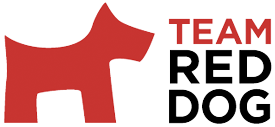
6 Tips for Creating an Effective Interview Process
Ever feel like your hiring comes down to your gut instincts about a candidate? Then perhaps it’s time to adjust your hiring process.
While gut responses can be life-saving in certain situations, they can also lead to snap judgments. They can be influenced by subconscious bias and give charismatic candidates an edge when other, less personable candidates, may be more qualified and a better fit.
Instead, make your interview process more fact-based and standardized. As a Bellevue-area staffing company with over 15 years of experience, we know good hiring practices.
Follow these six practices to ensure that you hire nothing shy of top-tier talent:
Be Consistent
To accurately assess all potential candidates, it is crucial to establish a consistent interview process. With different interviewers having varied styles of communication, it could be unclear what standard you are holding applicants to. Instead, creating an across-the-board model for conducting interviews will offer a trustworthy basis for comparison of candidates.
Avoid Bias
For each question, you intend to ask, have an established notion of what a good, bad, or average answer will be. This way, an interviewee who is more extroverted and personable does not see an advantage over an introvert simply because they are more comfortable speaking. By judging candidates’ answers over their personalities, you help to ensure that the most qualified person for the job is the one you hire.
Keep It Relevant
This one is simple — don’t ask questions that don’t pertain to the job. While it can be helpful at times to break the ice, making a point to get down to business right away helps avoid taking in extraneous information that could skew your impression of an applicant.
Trust Your Process
Make sure that the processes you’ve put in place to grade candidate performances are clear-cut. In other words, having an unambiguous scale to base your decisions on will create a better and more consistent way to generate feedback. Create a consistent feedback form that each interviewer can use to jot notes and grade during the interview. This will help keep your assessment of the candidate accurate and fresh to narrow down the best person for the job.
Sniff Out Patterns
Use the interview to gain as much knowledge about the candidate as possible. Delve deeper with your questioning to better understand the specific scenarios and reveal patterns of behavior. This involves asking questions about what they learned from their experience and if they would have handled it differently, which should indicate how a candidate will behave in the future and if they learned from any mistakes or mishaps.
Have a Conversation
Last, but not least, be sure to interact with applicants by having a conversation. A rigid question and answer format can lead to discomfort and even anxiety in even the best candidates. Instead, give them time to unpack their answers before immediately taking note of their response. This will not only make the interview more pleasant, but it may give the interviewee an opportunity to open up and offer a more articulate response.
No matter what industry you are hiring for, following these practices can help to strengthen your process, improve your interviewing ability, and ultimately help make the right decisions about who to hire, and who to pass up. If you need a little more help on creating a process that supports objectivity, check out our blog on the basics of behavioral interviewing.
For more hiring insights or to learn more about our top-notch staffing services in the Seattle, WA area and beyond, contact Team Red Dog today!
